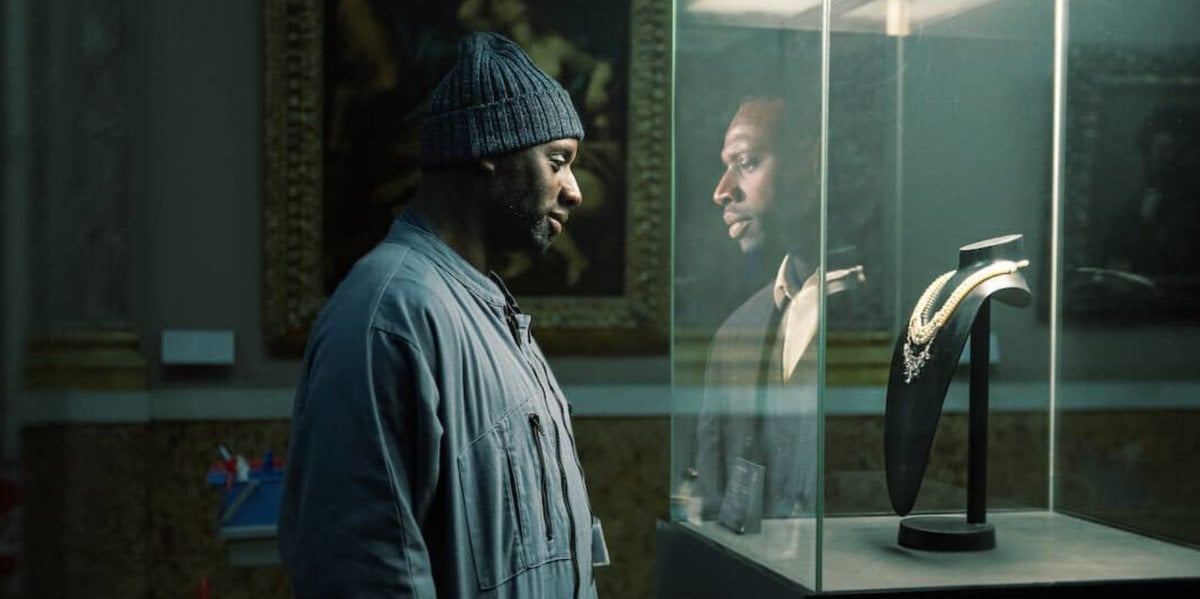
Netflix's Lupin is the streaming service's first French-language series to find a mainstream audience in the US. It's set to be bigger than both The Crown and Bridgerton in Australia.
The series (the first season dropped on Netflix in January) follows the story of Assane Diop (Omar Sy) a ridiculously good looking tall man who wears great coats and does a sneaky sneak.
When Assane was young, his father worked as a chaffer and butler for a wealthy white family. When the family patriarch accused Assane's father of stealing a diamond necklace that was once associated with Marie Antionette, he was thrown in jail. He later signed a confession and then ended his own life.
Watch the trailer for Netflix's Lupin. Post continues below.
Assane was placed in care and spent his days becoming increasingly obsessed with a book his father gave him and the fictional character of Arsene Lupin, a "gentleman thief" and a master of disguise, first created by Maurice Leblanc in 1905.
At the start of the series Assane, now an adult, plots to steal the necklace which has since been found and is about to go up for auction at the Louvre, to avenge his father's death.

